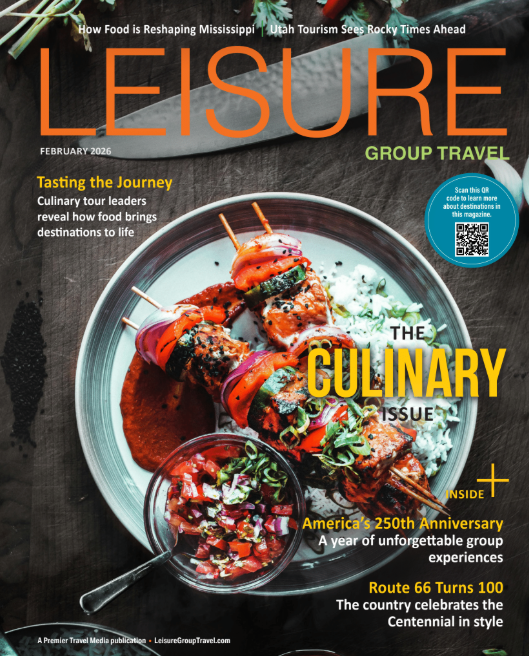Here are some benefits of group travel
The word “group” in group travel has bad connotations in the minds of some travelers. In fact, one tour company recently changed its advertising to “social travel” instead, highlighting what it sees as a benefit. Potential travelers may see a group trip as an annoyance, having to put up with others’ needs over yours, compromising on what to do and where to eat or stay.
So, it’s often our job as organizers and leaders of group trips to highlight the benefits to a group tour. A few “positives” are obvious: it’s usually more affordable than booking things yourself, and it saves travelers countless hours and brainpower spent on research planning.
But beyond those basic benefits, I want to highlight some of the benefits of group travel that are less obvious to travelers who may not otherwise be inclined to join a group tour, along with recommendations for how you the group leader can ensure these benefits are achieved.
You’ll bond deeply with people, both biologically and psychologically
A sense of belonging is so important in the world. It’s what we all want. Feeling part of a group even for a week together can be transformational especially for those people who might otherwise feel alone or marginalized or just overwhelmed in their daily lives. Sharing experiences together releases the hormone oxytocin, which is associated with bonding and trust, and when that happens together with others, you’ll make fast friends sometimes for life.
Takeaway for group leaders: Foster this bonding through activities and team-building exercises, even before the tour begins. Maybe even host Zoom sessions or regular meetups before the trip or host a book club focused on a book about the destination. On the tour itself, pay attention to the group dynamic to make sure everyone’s mingling, no one feels excluded. Often bus games like “Two Truths and a Lie” are quick and easy ways to get everyone laughing together, while learning about each other.
You’ll feel safer as you venture out and explore the world
There’s certainly physical safety in numbers. But there’s also psychological safety. Often travelers who don’t come from a travel-heavy background have to overcome hurdles within themselves to “permit” themselves to go abroad for the first time. Maybe it’s talking a spouse into letting them travel alone or with their friends for the first time or taking a moment off from being a mom to give yourself permission to do something for yourself.
Takeaway for group leaders: Foster a sense of collective responsibility for each other, especially if you’re going into less certain environments. You don’t have to do everything; depending on the personalities and aptitudes of your fellow travelers, give them tasks. It might be navigating, or making a decision or helping problem solve. The more an experience feels shared, the more everyone will naturally want to take care of each other.
You’ll learn from diverse perspectives
Group travel is mind-opening. Of course, there’s the interactions with local cultures and the knowledgeable tour guides you might meet, but there’s also a rich diversity of perspectives within the tour group itself.
Takeaway for group leaders: Make sure you as the group leader recognize the diversity of viewpoints and lived experiences of everyone in your group, and ensure that the information shared—by yourself, or fellow tour guides—should be focused on building bridges of understanding that includes everyone. Don’t assume there’s one single viewpoint on a subject; in fact, when done with sensitivity, facilitating conversations on topics related to information learn is a powerful way to bond the group.
You’ll be motivated to push yourself further
When you’re with your family or friends or spouse, you’re not usually prone to extending yourself beyond what you decide you want. But the social pressure of being in a room with semi-strangers is sometimes a good way to force yourself to do things you otherwise wouldn’t. I suppose this is a good form of peer pressure: you see everyone else trying the escargot, so you go for it!
Takeaway for group leaders: Encourage your group members to extend themselves but do it sensitively. You never know the reasons why someone might decide to bow out of an activity. Know when to push and when to stop, by reading body language and asking questions.
As the organizer and leader of a group trip, it’s one of your fundamental responsibilities to ensure that everyone feels included and welcomed in the group experience. When that happens, your travelers will have their lives transformed by the experience you organized.
Subscribe to Leisure Group Travel today and always stay up to date on current travel trends and group activities.
Mitch Bach is the co-founder of TripSchool, a learning organization that helps tour guides, tour operators and other travel professionals grow their skills and pursue their travel career dreams.






